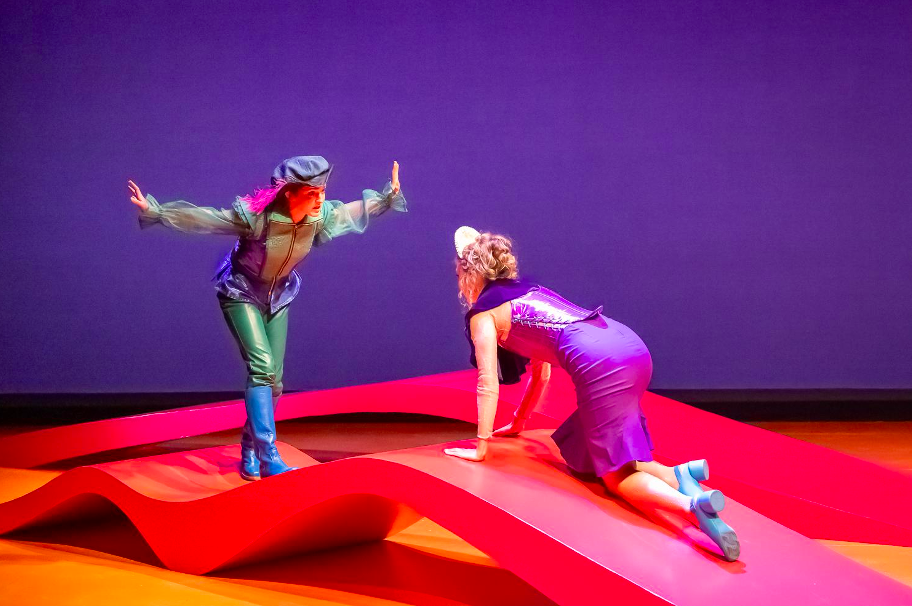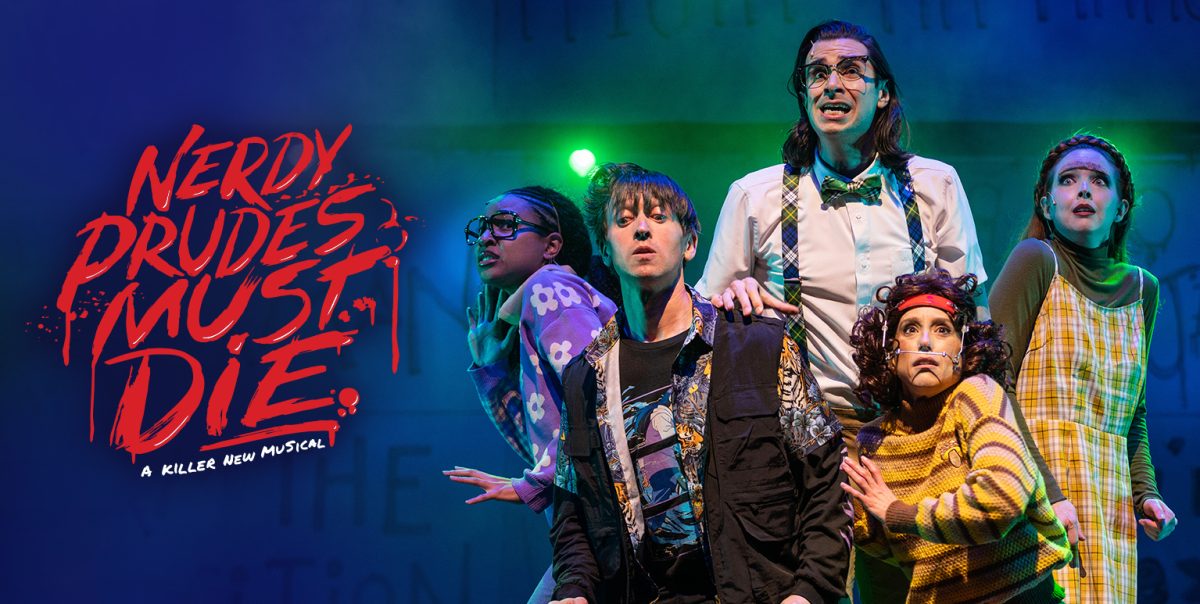
Veterans and their wives as well as University of Massachusetts students, theater aficionados and local members of the community nearly filled the Bowker Auditorium Wednesday night for a performance of Tim O’Brien’s 1990 book, “The Things They Carried.”
The 65-minute production taken verbatim from O’Brien’s work, was presented by The American Place Theatre, a not-for-profit off-Broadway theater group that takes works from American writers and presents them on stage in an educational context at schools and auditoriums across the country. The group has also adapted “The Kite Runner,” “The Brief Wondrous Life of Oscar Wao” and “The Giver,” among many others, for stage performance.
A single actor, Billy Lyons, articulated each of the five short stories taken from the book to the music of acoustic bassist and UMass senior David Casali, whose deep-bodied, hollowed sound reverberated from the shadows at the rear of the stage. Casali is the principal bassist for the UMass University Orchestra.
One member of the audience commented after the performance on the effectiveness of the one-man performance, commenting that she doesn’t think the book, which she had finished that morning, could have been accurately presented any other way. O’Brien’s book is told through a series of anecdotal stories that blur the line between history and fiction to tap the essence of the war for O’Brien.
O’Brien, as a college educated soldier from the Midwest, offers a unique perspective on the war, fully cognizant of the historical context of Vietnam during the war, following France’s colonial rule.
Following the performance, the actor, bassist and director Chris Snock facilitated a lengthy, powerful, and tense question and answer session. It took on the spirit of an open mic opportunity for veterans of the war, their wives, and others who lived through the era and were affected by the nation’s politics at the time, namely draft dodgers, to share their stories of the war.
One of the themes explored in O’Brien’s novel was the notion that the war and the stories that soldiers brought home with them were different for everybody, and in many cases at odds with those told by others. O’Brien could not have written it any better, as Lyons called on members of the audience one by one and the stories voiced around the auditorium created a dialogue of conflicting memories and sentiments.
“I hope that it builds empathy,” said Snock on what the performance says today about the soldiers returning from Iraq and Afghanistan who suffer from varying degrees of post-traumatic stress disorder. “But we’re storytellers, we don’t ever analyze the audience or say soldiers had that.”
Snock explained that by introducing the play onstage he’s able to build an environment of trust with the audience so that when he returns to the stage after the performance the audience is at ease and comfortable discussing the performance’s material in an open forum.
“It leads us to hopefully talking about the issues surrounding what these soldiers went through,” said Snock. “By unfolding and peeling away like an onion hopefully someone can talk about the deepest issues of it, which is in my personal estimation really sad that many of these veterans can’t talk about it.”
“I have a million stories, like most of these guys do,” said Robert Maloni, who deployed to Vietnam with the Army’s mechanized infantry in July of 1970, five months after being called to service in the first lottery of the draft.
Maloni carried a radio, calling in artillery through the nine months he spent at war, before being wounded in action after catching shrapnel in his shoulder. Maloni carried a camera through the war, but lost most of the photographs when it was taken from him after being wounded.
While flipping through a leather album of six-by-four photographs bound like a rolodex of business cards, Maloni recalled the experience of following a group of backpack-clad soldiers into the forest for three days with nothing but his M-16 and the pants on his legs.
On what’s different between the wars being fought overseas now and the war in Vietnam, Maloni questioned the decision to use the National Guard this time around as opposed to the college-aged students that rose in protest three and a half decades ago.
Tom Gardner, a professor at Westfield State University who will lead a group of college students back to Vietnam this June, said, “I think all of my generation experienced the war one way or the other, whether we went to the war, or resisted the war – particularly those of us who had to deal with the draft.”
Staff Sgt. Dennis Nester, a veteran of the Vietnam War, and more recently of Iraq, explained how every soldier handles the war differently depending on their age, their ability to mentally accept the orders they carried out in the wake of their service, and their ability to put their experiences behind them once they return.
“You’re not in a foxhole anymore, you’re not in a bunker, and nobody’s going to kill you,” Nester said. “When someone goes like this,” he said, motioning a fist inches to someone’s eyes, “it stops here,” stopping just before the nose.
Nester explained that to some, a light tap on the shoulder is never simply that anymore; it can drive some to take the screws off their motorcycle or lose themselves in the adrenaline of war they can never leave behind, killing themselves in delusions of the ability to fly or bear the weight of the world on their shoulders.
The production was part of an associated exhibit, the “UMass Amherst War Veterans: Commemoration Through Art, Theatre, Literature and Film,” supplemented with a portrait series of area veterans from photographer David Turner, which will run in Memorial Hall through Nov. 18.
Brian Canova can be reached at [email protected]






